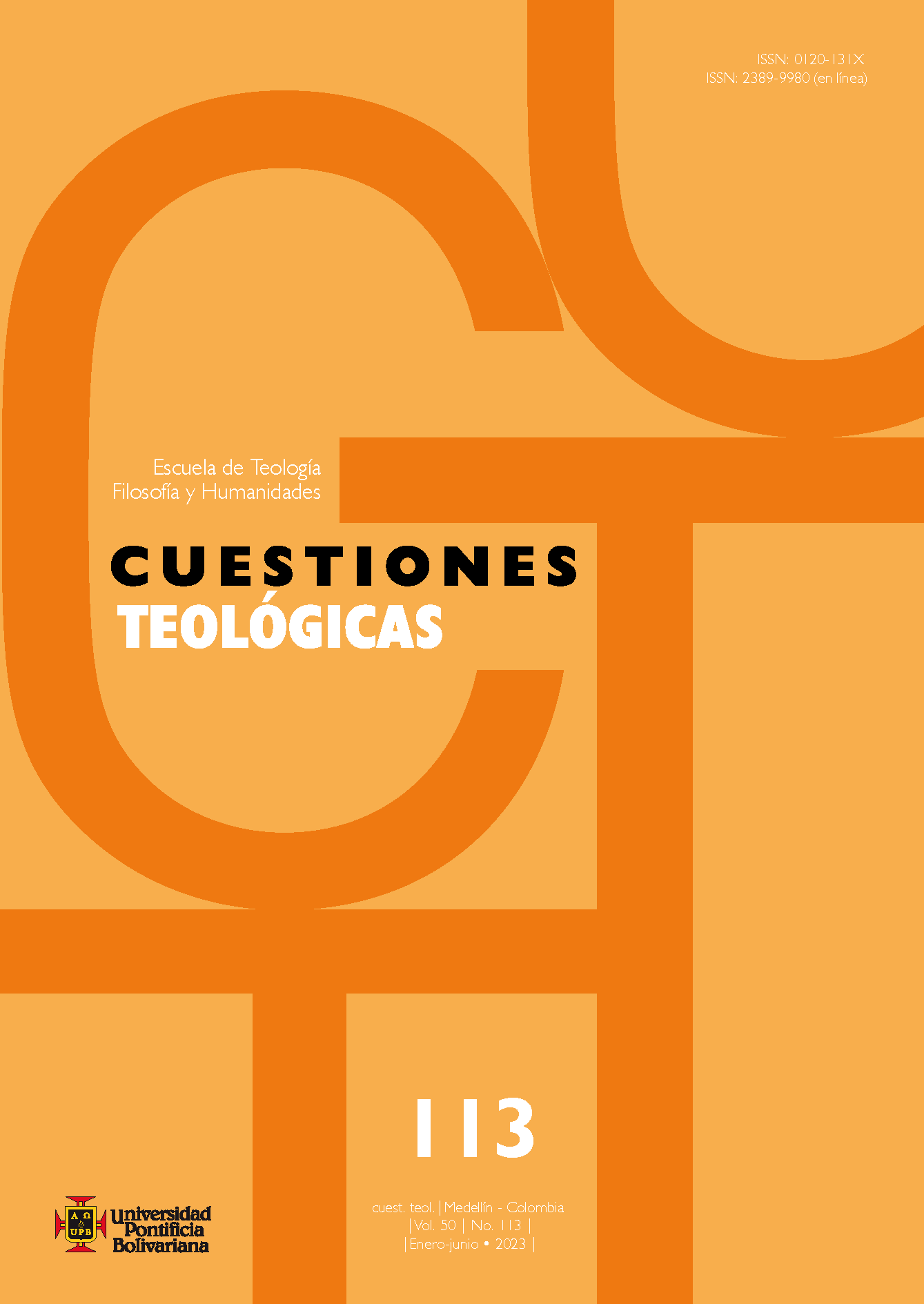Rethink the religious phenomenon. Approach to the encounter between mysticism and the possibility of being
Main Article Content
Abstract
The meaning of life is found beyond eschatological concepts that, on occasions, separate human beings from their constitution as a project. This meaning can be founded, from a Heideggerian perspective, in the “fact” of being-in-the-world. This conception gives rise to the need to better understand the phenomenon of religious life as a manifestation of the search for meaning that continues to question the human being who returns to the religious phenomenon that seeks an answer to his search for the meaning of life and the fact that such a search
refers to the very mystery of existing. The human being of the religious phenomenon is not exempt from the tentatio, considered by primitive Christianity as a dispersion. Such tentatio, however, could be an element of great value in life, to the extent that it manages to lead the human being to a meaning: reflection before the very mystery of living. In this context, questions arise such as: To what extent can philosophy contribute to rethink the religious phenomenon? How has the phenomenon of religious life been read and how should it be read? Why look again at this phenomenon in today’s world? This article will take as its main reference Heidegger’s
Phenomenology of Religious Life, a work from which some concepts of primitive Christianity could be better understood for a reflection and understanding such that the reader can analyze the meaning of religious life beyond institutions in a fundamentally mystical perspective.
References
Agustín, S. (1983). Confesiones. Madrid: Sarpe.
Boscan, A. (15 de Agosto de 2017). Filosofía, Dios y Religión en Heidegger. Universidad del Zulia.
Capelle-Dumont, P. (2002). Filosofía y teología en el pensamiento de Martin Heidegger. Buenos Aires: Fondo de Cultura Económica.
Carrasco Pirard, E. (12 de abril de 2022). Heidegger y el Cristianismo.
de Lara, F. (2007). Heidegger y el cristianismo de San Pablo y San Agustín. Eidos: Revista de Filosofía de la Universidad del Norte, (7), 28-46.
Escudero, J. A. (2007). El programa filosófico del joven Heidegger. (En torno a las lecciones de 1919. la idea de la filosofía y el problema de la concepción del mundo). Eidos: Revista de Filosofía de la Universidad del Norte, (7), 10-27.
Fernández, A. G. (2009). Heidegger y la reforma protestante. Revista de Filosofía, (62), 7 – 47.
Flórez, R. (2022). Pensadores fronterizos: ¿cómo leyó Heidegger a san Agustín?.
Heidegger, M. (1919/20). Problemas fundamentales de la fenomenología. Madrid: Alianza.
Heidegger, M. (1987 ). De camino al habla. Barcelona: Ediciones del Serbal.
Heidegger, M. (1990). De camino al habla. Barcelona: Del Serbal.
Heidegger, M. (2000 ). Ontología Hermenéutica de la facticidad. Madrid: Alianza Editorial.
Heidegger, M. (2001). Hitos. Madrid: Alianza Editorial.
Heidegger, M. (2005). Introducción a la Fenomenología de la Religión. Madrid: Siruela.
Heidegger, M. (2006). Meditación. Buenos Aires: Biblos.
Heidegger, M. (2012). Ser y Tiempo. Madrid: Trotta.
Heidegger, M. (2014). Estudios sobre Mística Medieval. Madrid: Fondo de Cultura Económica.
Lambert, C. (2008). Consideraciones sobre la religión en la fenomenología del joven Heidegger. Teología y vida 49(3), 305-314. https://doi.org/10.4067/S0049-34492008000200008
Löwith, K. (2006). Heidegger, pensador de un tiempo indigente. Buenos Aires : Fondo de Cultura Económica .
Masís, J. (2013). Fenomenología de la vida religiosa en el joven Heidegger: De la Indicación Formal a la Interpretación Heideggeriana del Cristianismo Primitivo. LOGOS. Revista de Filosofía 41(123), 45-78.
Rocha de la Torre, A. (2009). Martin Heidegger y la experiencia del camino. Barranquilla: Ediciones Uninorte.
Santiesteban, L. C. (2007). La confrontación de Heidegger con san Agustín y la mística medieval. Nota crítica en torno a Estudios sobre mística medieval de Martin Heidegger. Diánoia, 52(58), 177–183. https://doi.org/10.21898/dia.v52i58.326






